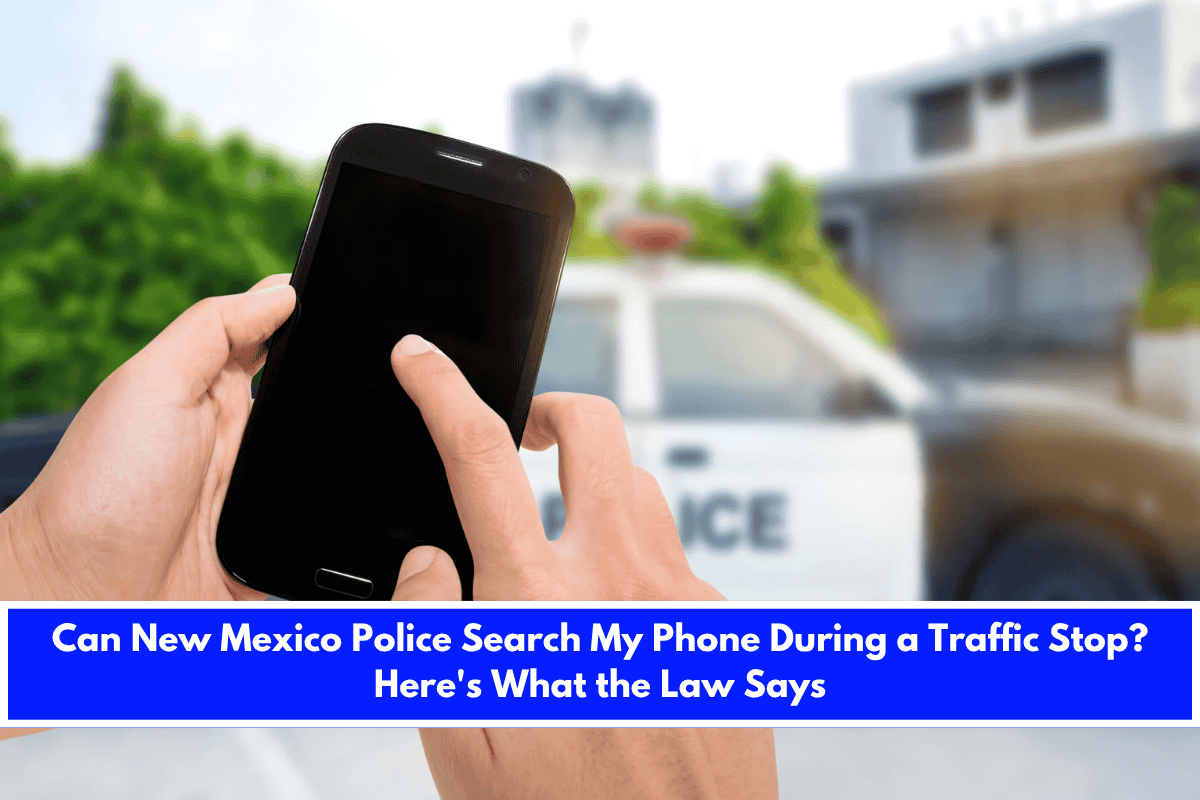In New Mexico, police cannot search your phone during a traffic stop without a warrant. Both the U.S. Constitution’s Fourth Amendment and New Mexico’s own Constitution require law enforcement to obtain a search warrant before accessing the contents of your phone, unless a recognized exception applies.
New Mexico courts are especially protective of privacy rights and have a “strong preference for warrants,” often going beyond federal requirements in limiting warrantless searches.
Exceptions to the Warrant Requirement
There are only a few narrow exceptions where police might legally search your phone without a warrant:
- Consent: If you voluntarily give an officer permission to search your phone, they do not need a warrant. You have the right to refuse consent.
- Exigent Circumstances: If police believe that waiting for a warrant would lead to the destruction of evidence or there is an immediate threat to safety, they may be able to search without a warrant. These situations are rare and must be justified in court.
- Search Incident to Arrest: Even if you are arrested, police generally still need a warrant to search your phone’s contents due to the high expectation of privacy in digital devices. The U.S. Supreme Court and New Mexico courts have held that phones are not like other items on your person and require a warrant to search.
Texting While Driving and Phone Seizure
If you are stopped for texting while driving, New Mexico law specifically states that your phone is not subject to search or seizure simply for a texting violation. Unless there is another lawful basis (such as probable cause for a more serious crime), police cannot search your phone during a routine traffic stop for texting.
Case Law and Enforcement
- Search Warrants: New Mexico courts have repeatedly affirmed that police must obtain a warrant supported by probable cause to search a phone, whether for call logs, texts, or location data.
- Suppression of Evidence: If police search your phone without a warrant or valid exception, any evidence they find may be suppressed (excluded) in court.
Your Rights During a Traffic Stop
- You have the right to refuse a search of your phone.
- You do not have to provide your phone’s passcode or unlock it unless ordered by a court.
- If police ask to search your phone, you can say: “I do not consent to a search.”
Summary Table
| Situation | Can Police Search Your Phone? | Legal Requirement |
|---|---|---|
| Routine traffic stop | No | Warrant or valid exception |
| With your consent | Yes | Voluntary consent |
| Exigent circumstances | Rarely, only if justified | Immediate threat/destruction |
| Search incident to arrest | No (generally) | Warrant still required |
| Texting while driving stop | No | Statute prohibits search |
During a traffic stop in New Mexico, police cannot search your phone without a warrant or your explicit consent. Your privacy rights are strongly protected, and you should not feel pressured to allow a search unless a proper legal process is followed.
Sources:
- https://www.harrisonhartlaw.com/your-rights-during-a-police-stop/
- https://lawfirmnm.com/blog/2018/12/probable-cause-and-warrantless-searches/
- https://law.justia.com/codes/new-mexico/chapter-66/article-7/part-4/section-66-7-374/
- https://law.justia.com/cases/new-mexico/supreme-court/2020/s-1-sc-37373.html











Leave a Reply